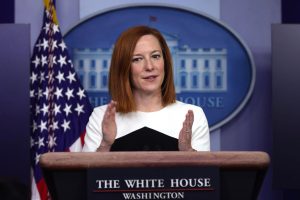Daily Point
Testing is always a test in New York
When former Education Trust-New York executive director Ian Rosenblum was named acting assistant education secretary by President Joe Biden last month, the hire made a clear statement in school policy circles. The Biden administration would mostly continue to back mandated standardized testing, just as the Obama administration had, more strongly than their Democratic allies in the powerful teachers’ unions wanted.
Education Trust is led nationally by former Obama Secretary of Education John King, who before that was the New York education commissioner who implemented learning standards based on the Common Core and teacher assessments linked to student performance on math and English testing grades three through eight.
The non-profit, which advocates for equity in education, has argued that standardized tests are a prime method of highlighting the unmet needs of under-resourced students and schools struggling with high poverty and other challenges, like high numbers of nonnative English speakers. Education Trust believes that moving away from standardized testing will hurt these students and districts the most.
Now Biden’s hire has come home to roost. A letter Monday from Rosenblum informed states seeking waivers from this year’s standardized assessments, including New York, that they would not get a repeat of the blanket excusals the Trump administration issued last spring, early in the COVID-19 crisis.
States have leeway to change the tests this year, or shorten them or reschedule them, and they cannot force students to come into school buildings to take the tests, but states cannot broadly cancel them, either.
In the letter, Rosenblum explained the decision by writing: “To be successful once schools have re-opened, we need to understand the impact COVID-19 has had on learning and identify what resources and supports students need. We must also specifically be prepared to address the educational inequities that have been exacerbated by the pandemic, including by using student learning data to enable states, school districts, and schools to target resources and supports to the students with the greatest needs. In addition, parents need information on how their children are doing.”
So what about the dollars and cents?
But what about the money the state paid for last year’s tests, and this year’s? There were real savings last year, it turns out, and costs could have been again, but thanks to Rosenblum’s letter, that’s no longer the case.
The contract with testing company Questar, originally set to run out after last year’s tests were administered and evaluated, was for $44 million over five years, or just under $9 million a year.
State Education Department officials say the cancellation saved the state about $5 million off last year’s tab, and would have saved about the same amount again this year … but only if a waiver from the federal government had come before the exams were shipped to schools.
Now the tests will have to be sent, and fully paid for. It’s just not clear, with remote learning on top of the already large Long Island “Opt-out” movement that had participation rates at about 50% for the last several years, how many of those paid-for tests will actually be taken by students.
—Lane Filler @lanefiller
Talking Point
Assessing Gov. Cuomo’s emergency powers
The legislative frenzy to revoke Gov. Andrew M. Cuomo’s emergency powers has paused for now once state lawmakers actually had to come up with an oversight plan and determine what their responsibilities would be after the governor’s broad powers were ended. The two chambers have not coalesced around a law, and are divided on how many legislators should be on any review panel, whether Republicans in the minority should be represented and have a vote, whether it would be an approval or disapproval process, and even whether some of their ideas are constitutional.
Still, it’s important to determine what exactly Cuomo has done with those powers and what would happen if they are undone. The Point requested a list of those orders. Here is our analysis:
Since March, the governor has issued more than 200 directives. But that doesn’t mean the lawmakers would have to address all of them if the State Legislature sought to restrict the governor’s emergency powers.
A Newsday analysis showed that many of them were updates or revisions of an initial order. Others tackled specific issues or events that are no longer operative. Some directives have been revoked by still other directives; others have been extended or revised.
Much of the political attention on the emergency powers issue has emerged as the nursing home crisis took center stage. But the specific nursing home guidance that has gotten so much attention isn’t even among the directives that fell under Cuomo’s emergency powers. That’s because much of the governor’s executive authority in that sector is covered by the state’s public health law. There does seem to be one exception: the recent decision to require a negative COVID-19 test result before hospital patients could be discharged to a nursing home.
Looking back at the early orders as the crisis unfolded, Cuomo issued his first set of directives on March 12. Those orders limited gatherings to under 500 people, and only at 50% occupancy. Days later, however, a slew of additional directives started to shut the state down, part of the “New York on Pause” effort. Separate directives dealt with malls, restaurants, amusement parks, salons, schools, and more.
Some were incredibly limited in scope, and are irrelevant now, such as the one that postponed the April presidential primary last year. Some are limited to certain geographic areas. Still others, like the limitations on elective surgery, or the allowance for a mother-to-be to have a birthing partner with her, have been revised, but remain in place in some form.
Among the most recent items on the list: Four directives that revise previous ones, and allow liquor stores, restaurants, gyms, and other businesses to stay open until 11 p.m., rather than the previous 10 p.m.
There are also minor, but clearly important, directives in the mix, such as one recently that allows a person with a pharmacy technician certificate to automatically be licensed as a pharmacy technician to be able to administer the COVID-19 vaccine.
Then there are the far more significant directives that continue to resonate now, including mask mandates, capacity limitations, and indoor dining rules. If the lawmakers were to revoke these orders, they would then need to either approve or disapprove any new ones.
That’s why the clamoring has died down for now as individual legislators realize that constituents unhappy with any of these directives — and there are many — could now hold them accountable.
Those are among the issues that the legislature likely would have to think about and address in any change that’s made to emergency powers.
—Randi F. Marshall and Rita Ciolli @RandiMarshall and @ritaciolli
Pencil Point
Left behind
“Obviously Ted Cruz’s Cancun slipup last week triggered a flurry of ideas. This one channeling a likeness of poor Snowflake, the Poodle, didn’t make it into print. Political cartooning can be tough sledding.” — Matt Davies @MatttDavies
For more cartoons, visit www.newsday.com/cartoons



















